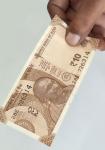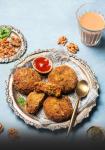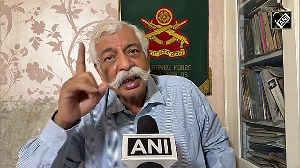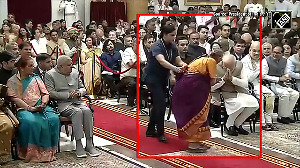After months of doping scandals and complex legal wrangling, Australia is finally looking forward to the Athens Olympics with real optimism.
Australia's build-up to the Games has been marred by doping claims, controversy over team selections and security arrangements but the gloom is finally starting to lift.
Australia's preparations got off to a rocky start when they upset Greek Olympic organisers and things went from bad to worse.
The Australian government issued a warning to visitors planning to attend the Olympics to exercise caution after three bombs exploded in Athens exactly 100 days before the August 13 opening ceremony.
Although several other countries issued similar warnings and some foreign athletes announced they were skipping the Games because of concerns about safety, Greek officials saved most of their criticism for Australia.
When the security issue started to die down, Australia found itself dealing with problems closer to home but, with the start of the Games just days away, the mood is suddenly brighter.
The president of the Australian Olympic Committee, John Coates, expects Australia to shrug off the troubled preparations and finish among the top five nations in the medals tally.
"There's nothing sure, particularly in Olympic sport, but all of the signs are there that our sports have continued to work well," Coates said.
"The athletes over the last four years (have been) getting very encouraging results that would leave me to think that Australia should again finish in the top five nations."
MEDALS TABLE
Coates's optimism is boosted in part by the size of the Australian team which numbers 482. That is smaller than the 631 who competed at the Sydney Olympics four years ago but still Australia's biggest team for an overseas Olympics.
Helped by home advantage, Australia won 58 medals in Sydney, including 16 gold, to finish fourth on the medals table but the Australian Sports Commission is projecting 46 medals in Athens.
"I am very excited about this team," Coates said. "I'm very proud that our athletes across all sports, except handball, have managed to qualify, including the four wheelchair athletes."
Australia will compete in every sport in Athens except handball after qualifying for more team events than any other country except Greece.
They expect to win medals in 12 different sports with swimming providing more than a third of their medals.
Ian Thorpe, who won three gold and two silvers as a 17-year-old in Sydney, again looms as Australia's trump card in the pool after entering six events.
Thorpe almost missed his favourite event, the 400 metres freestyle, after he slipped off the blocks and was disqualified for a false start during the trials in March.
But he was eventually reinstated after Craig Stevens, who finished second to Grant Hackett at the trials, gave up his spot to concentrate on his other events.
The saga divided Australia for more than a month with opinions split over whether Stevens was right to stand aside for Thorpe.
Many urged Stevens to swim the 400 even though he had little real chance of winning and were upset when his management team negotiated an exclusive deal to make his announcement live on Australian television.
DOPING ROW
But the drama over Thorpe's inclusion in the 400 paled into insignificance compared to the doping row over Australia's cyclists, who are also expected to figure highly among the medals.
The team were investigated after former junior world track champion Mark French alleged elite cyclists at the Australian Institute of Sport were injecting themselves with substances both legal and illegal.
Jobie Dajka was dumped from the team after he admitted lying to investigators while Sean Eadie was dropped, then reinstated, after being charged with trafficking human growth hormone.
A third member of Australia's cycling team, four-times world champion Shane Kelly, was also investigated after being named by French, who is himself banned from the Olympic for life for seven doping violations.
Kelly did admit to injecting himself with vitamins to beat a cold but denied using banned drugs and was allowed to stay on the team.
Australia's lone female weightlifter Caroline Pileggi was kicked off the team for refusing to take a drugs test and Coates admitted Australia's reputation had been tarnished by the scandals though he denied there was a major drugs problem within the team.
"I think it would be more embarrassing if we did nothing about it," he said.
"Every time that we've had a problem in doping we've faced up to it."








 © 2025
© 2025